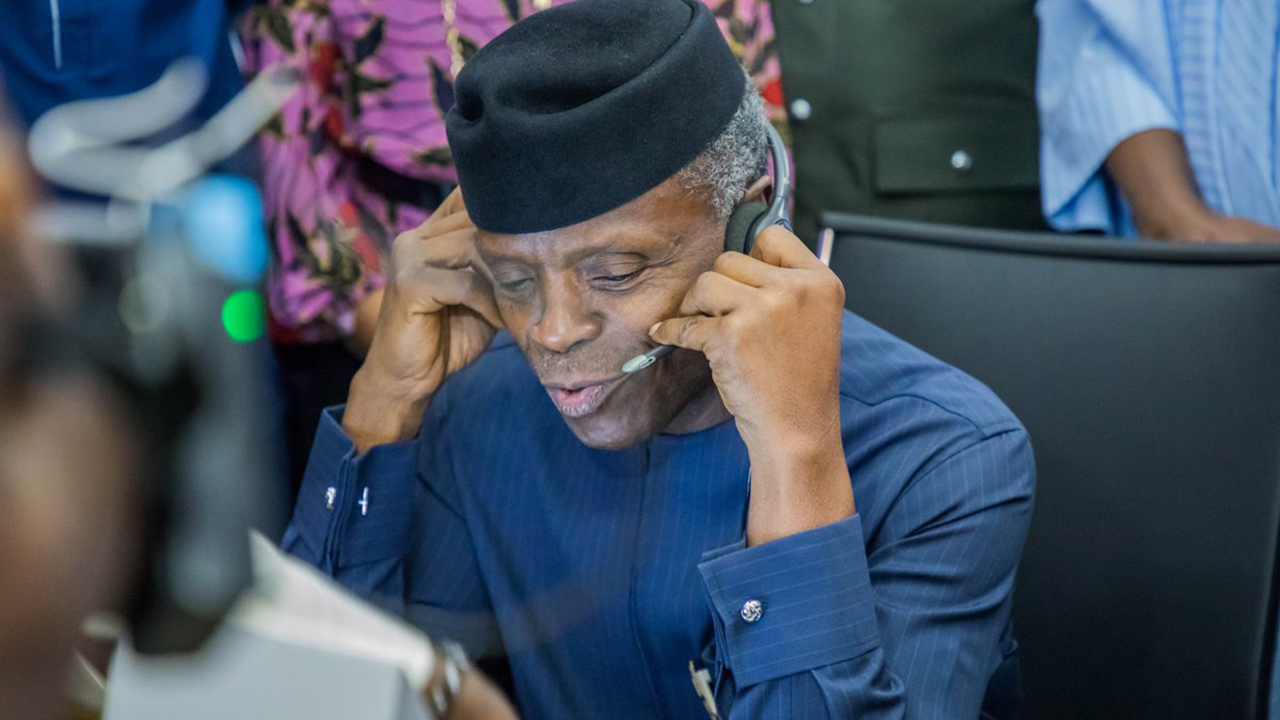
Vice President Yemi Osinbajo, Governor Babajide Sanwo-Olu Lagos State, Jim Ovia and Uyi Akpata have argued that disruptive technology, if maximised effectively, can transform Africa’s economy.
Ovia is the founder of Zenith Bank, while Akpata is regional senior partner (West Africa) of PricewaterhouseCoopers (PwC).
Speaking at the opening of the first PwC Experience Centre in Lagos yesterday, they also insisted that Africa had the potential to become production and consumption powerhouse in the 21st century, by utilising emerging technology to disrupt the business landscape.
Coined by Harvard Business School professor, Clayton Christensen, disruptive technology is one that displaces an established technology and shakes up the industry, or a ground-breaking product that creates a completely new industry.
Osinbajo, who was represented by the director-general, Budget Office, Ben Akabueze, noted: “We recognise that Nigeria’s future does not lie in oil and gas, but in technology and innovation. Our goal of moving Nigeria’s economy away from a resource-based to a knowledge-based model is one that we must take seriously.
“The Economic Recovery and Growth Plan (ERGP) is a step in that direction. One of the key objectives of ERGP is to make the Nigerian economy globally-competitive.”
According to Sanwo-Olu, the PwC initiative is not only timely, by the way to go. “We need to merge this city where we need to work with telcos to ensure that internet facilities are available.
“Technology is what we can do to catch up. If we get it right, we can leapfrog with the developed world. They are talking about robotics, artificial intelligence, virtual realities and they are happening already and we should begin to think along that line.
“Disruptive technology can help in education, security and the public sector. It can also help us create solutions and innovative ideas we can use to solve public problems like transportation and waste management. It is an experience for the youths.”
Ovia, who also commended the PwC initiative, stated that Nigeria was ranking fast in digitalisation propelled by the private sector.
“My main concern is the preparedness of the ecosystem to deploy disruptive services; that is, do we have the infrastructure for that? Yes, we have the ecosystem,” he said.
Akpata, on his part, argued that the experience centre, the first in Africa, “is positioned to inspire the continent’s growing economy. It has the Demo Lab, Amphitheatre, Exchange Room and Alt-Dynamic.
“Disruptive innovation is creating new target markets and unprecedented consumer choice. Capitalising on these potential opportunities demand a complete rethink of client engagement and business development strategies.
“Disruption is an opportunity and challenge for organisations and the economy. It is prevalent due to an increased rate of societal changes and technological advancement.”
Partner and Experience Centre Leader, PwC West Africa, Femi Osinubi, noted: “The PwC experience centre in Lagos is the newest member of a growing family of more than 30 experience centres with a shared goal to foster innovation to create products and services that delight customers. There are over 2,300 passionate thinkers and doers in the PwC Experience Centres around the world.”






